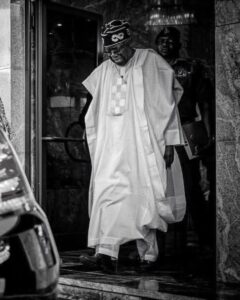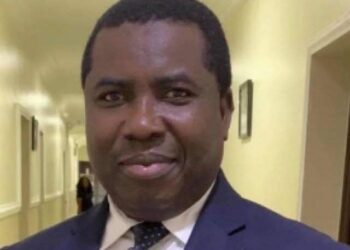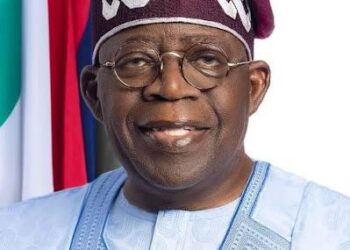
By Ibrahim Kegbegbe
Abuja, Nigeria – Wednesday, September 17, 2025
ABUJA – President Bola Ahmed Tinubu on Wednesday, September 17, 2025, announced the cessation of the state of emergency in Rivers State, six months after suspending democratic institutions in the oil-rich state over what he described as a “total paralysis of governance.”
In a national broadcast from the State House, the President declared that the Governor of Rivers State, Siminalayi Fubara, his deputy, Ngozi Nma Odu, and members of the Rivers State House of Assembly, led by Speaker Martins Amaewhule, would return to their offices from Thursday, September 18, 2025.
“You will recall that on March 18, 2025, I proclaimed a state of emergency in Rivers State because the government had collapsed under the weight of bitter conflicts between the executive and the legislature,” Tinubu said. “It would have been a colossal failure on my part as President not to act when the Supreme Court itself declared that there was no government in Rivers State.”
READ ALSO:Eti-Osa Chairman Omoba Adeola Adetoro Wins Residents’ Praise for Quick Action
Why the Emergency Was Declared
The crisis in Rivers State reached boiling point earlier this year when 27 members of the House of Assembly opposed Governor Fubara while four stood with him, creating a legislative impasse. The Governor was unable to present the state’s Appropriation Bill, leaving the government without funds to function. Oil pipelines and other critical economic assets were reportedly vandalised during the standoff.
Efforts by the Presidency, traditional rulers, and political stakeholders to reconcile the factions collapsed, prompting Tinubu to invoke Section 305 of the 1999 Constitution (as amended), which empowers the President to declare a state of emergency in the event of a breakdown of law and order.
The declaration, approved by the National Assembly in March, suspended the Governor, Deputy Governor, and the entire House of Assembly for six months, while a federal-appointed administrator managed the state’s affairs.
Resistance and Legal Battles
Although many Nigerians hailed the decision as necessary to restore order, critics argued that the proclamation was unconstitutional and politically motivated. More than 40 legal challenges were filed in Abuja, Port Harcourt, and Yenagoa to invalidate the move, some of which remain pending in court.
Tinubu, however, insisted that the proclamation was “an inbuilt constitutional tool to address situations of actual or threatened breakdown of public order.”
Return to Democratic Governance
According to the President, fresh intelligence indicates that both camps in Rivers State have now shown “a new spirit of understanding, a robust readiness, and potent enthusiasm” to resume governance in peace.
“I do not see why the state of emergency should exist a day longer than the six months I had pronounced at the beginning of it,” Tinubu said. “From midnight today, normal democratic governance will return to Rivers State.”
A Warning to Other States
Tinubu used the opportunity to caution other governors and legislators across Nigeria against the dangers of political brinkmanship.
“It is only in an atmosphere of peace, order, and good government that we can deliver the dividends of democracy to our people,” the President said. “I implore all of you to let this realisation drive your actions at all times.”
What Next for Rivers?
The return of Governor Fubara and the Assembly marks a new chapter for Rivers State, one of Nigeria’s most politically volatile and economically strategic states. Political observers believe the coming weeks will be a test of whether both factions can genuinely work together after months of hostility.
READ ALSO:Ajadi Celebrates Hon. Kehinde Teluwo on Birthday, Praises His Leadership in Ogun State
For many Rivers people, the lifting of the emergency is a welcome relief after months of political uncertainty and fears of prolonged federal control.

















